
🧠 Tenured brain, fresh daily takes. Maximum citations but sanity questionable. The prof your prof follows for daily research & AI takes. Quality wins.
6 subscribers
How to get URL link on X (Twitter) App

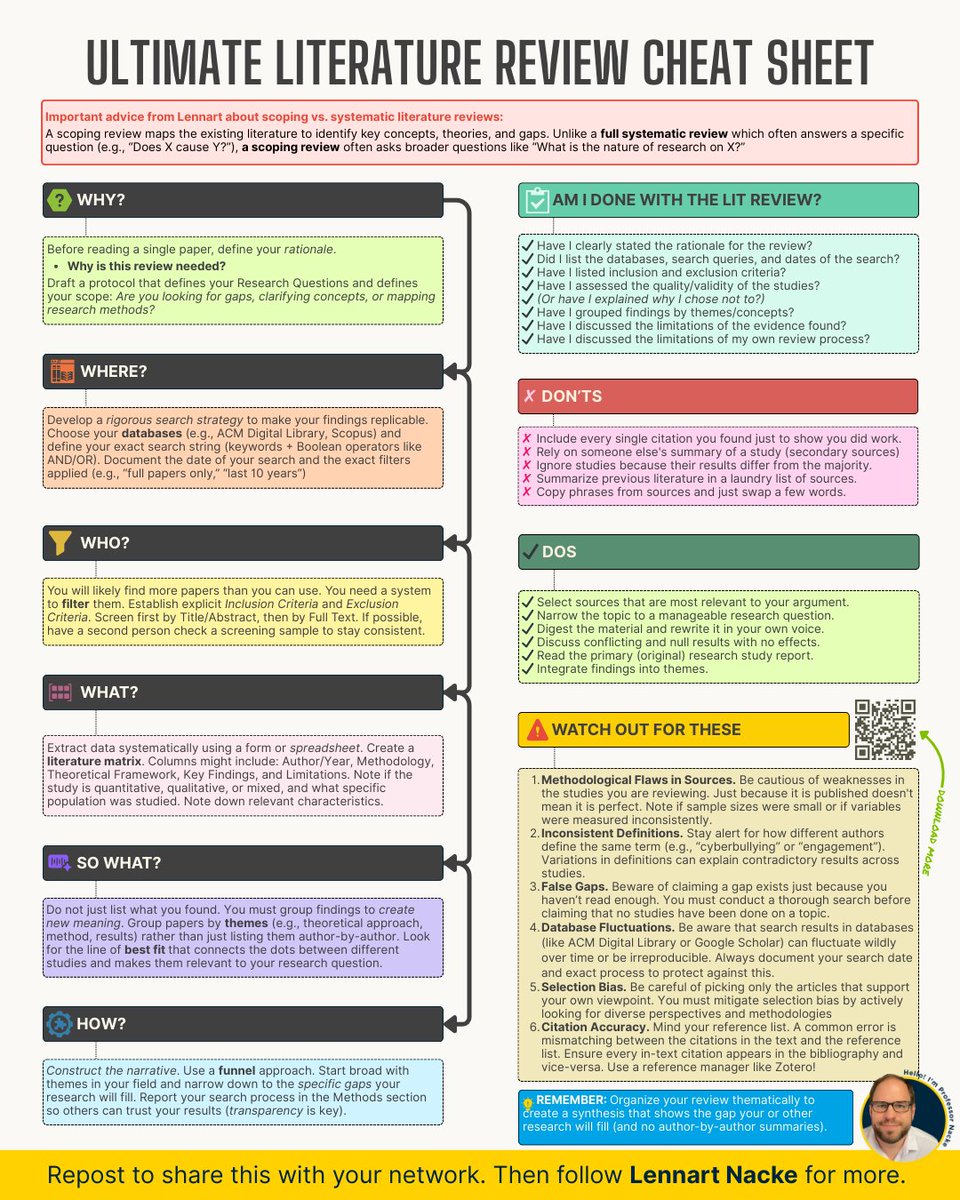
 1. Write the protocol before reading
1. Write the protocol before reading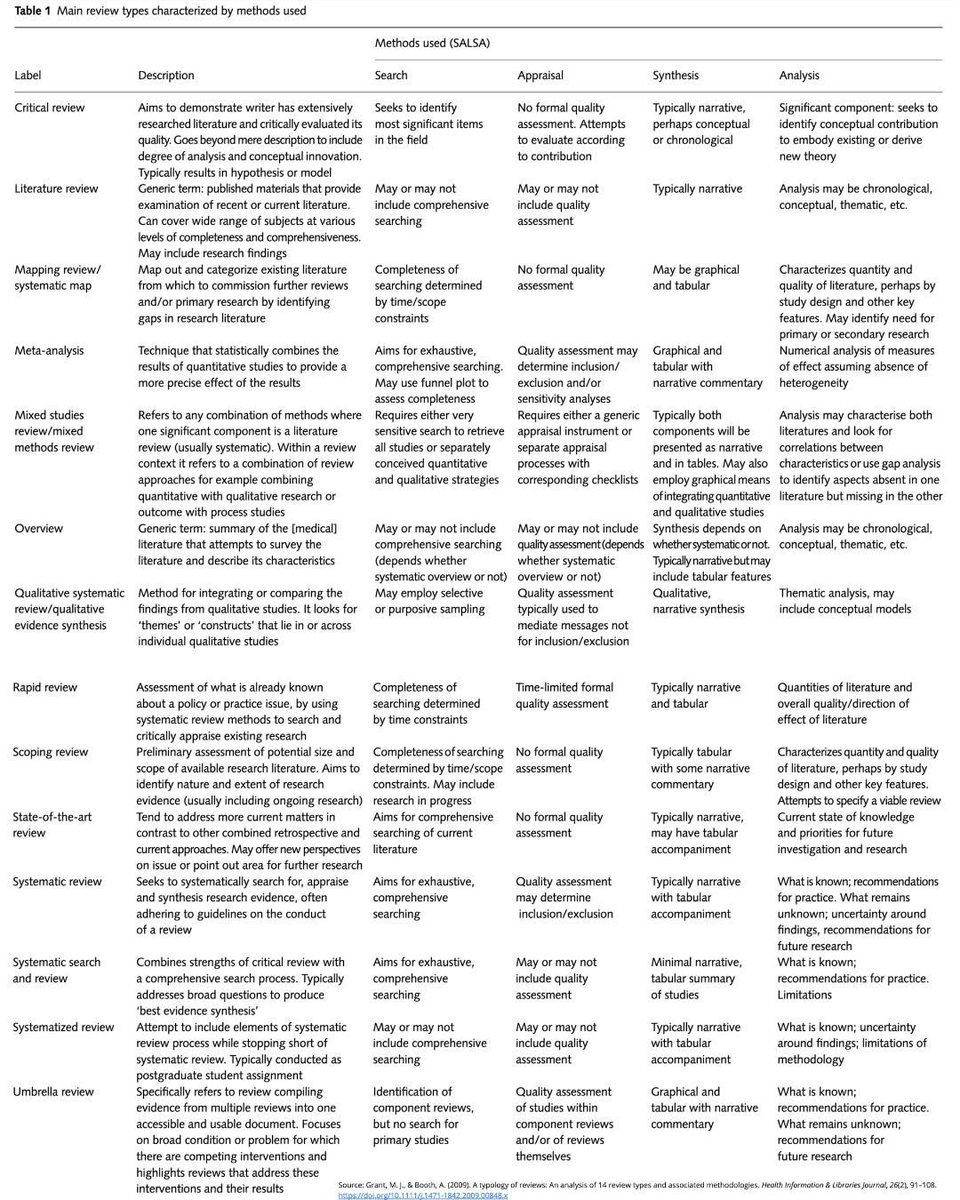
 Run a systematic review when you’re shaping guidelines.
Run a systematic review when you’re shaping guidelines.
 Conceptual search is taking its place.
Conceptual search is taking its place.
 Every section serves ONE purpose:
Every section serves ONE purpose:
 Evaluation systems are broken.
Evaluation systems are broken.
 I still remember opening my inbox at 6 AM.
I still remember opening my inbox at 6 AM.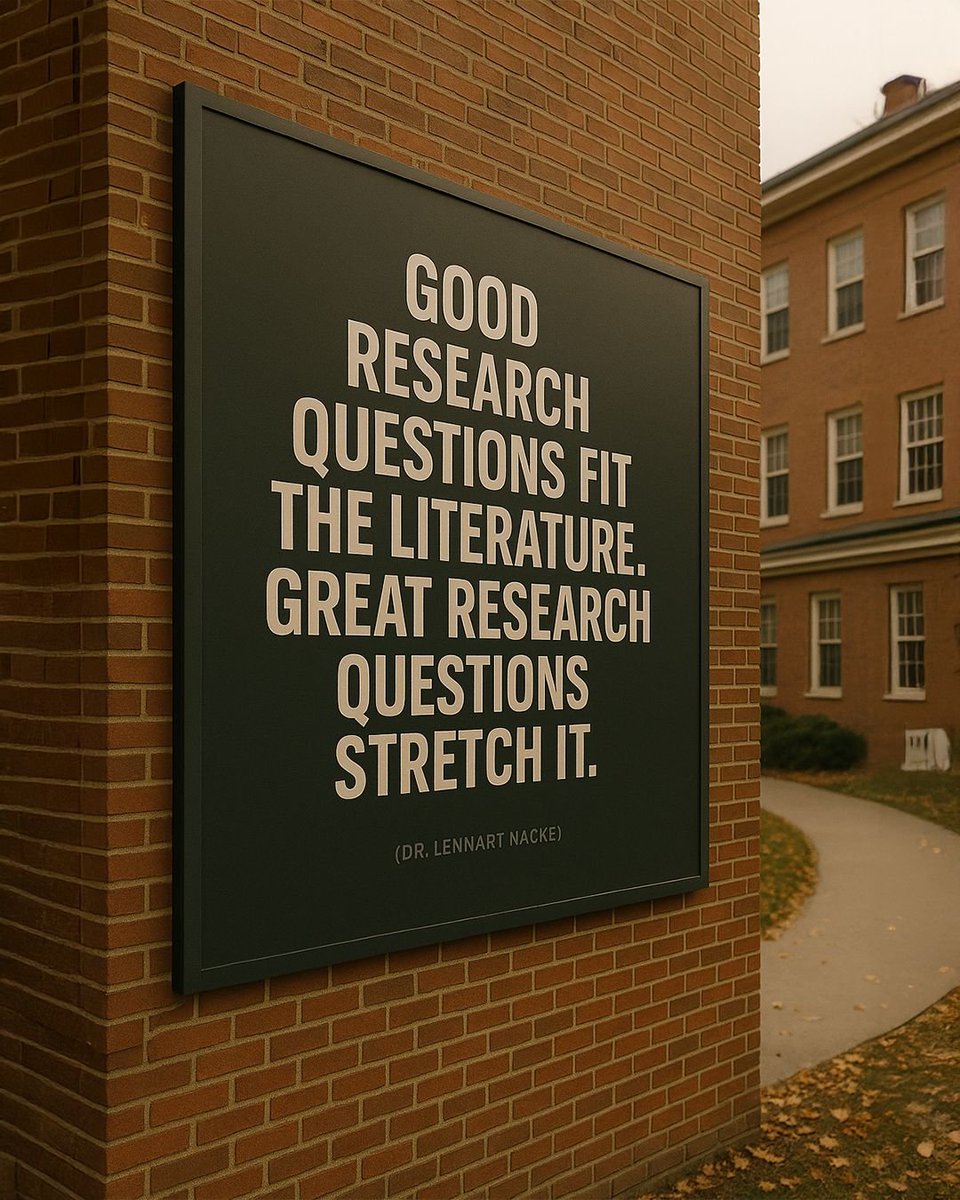
 1. Start with scope
1. Start with scope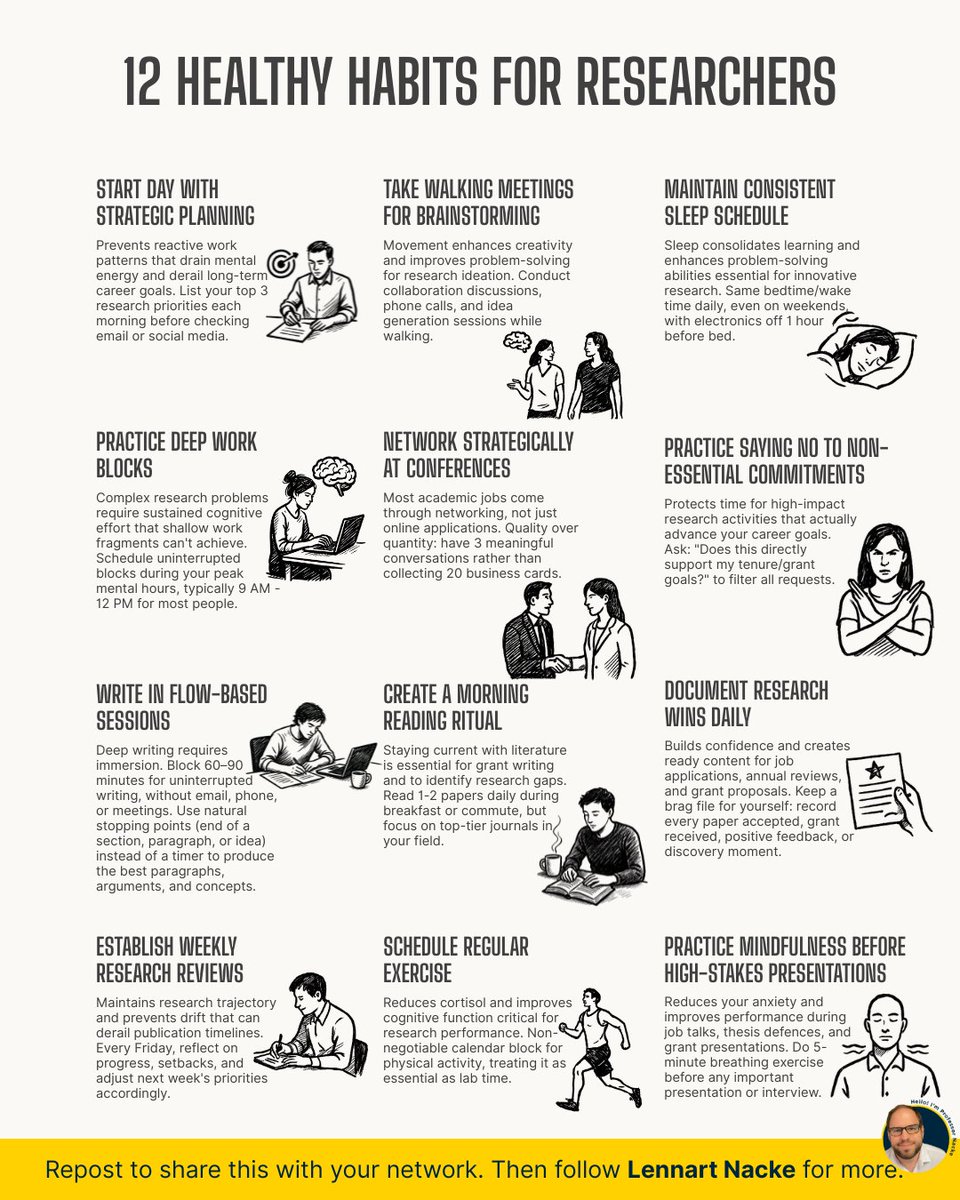
 Pillar 1: Cognitive Foundation
Pillar 1: Cognitive Foundation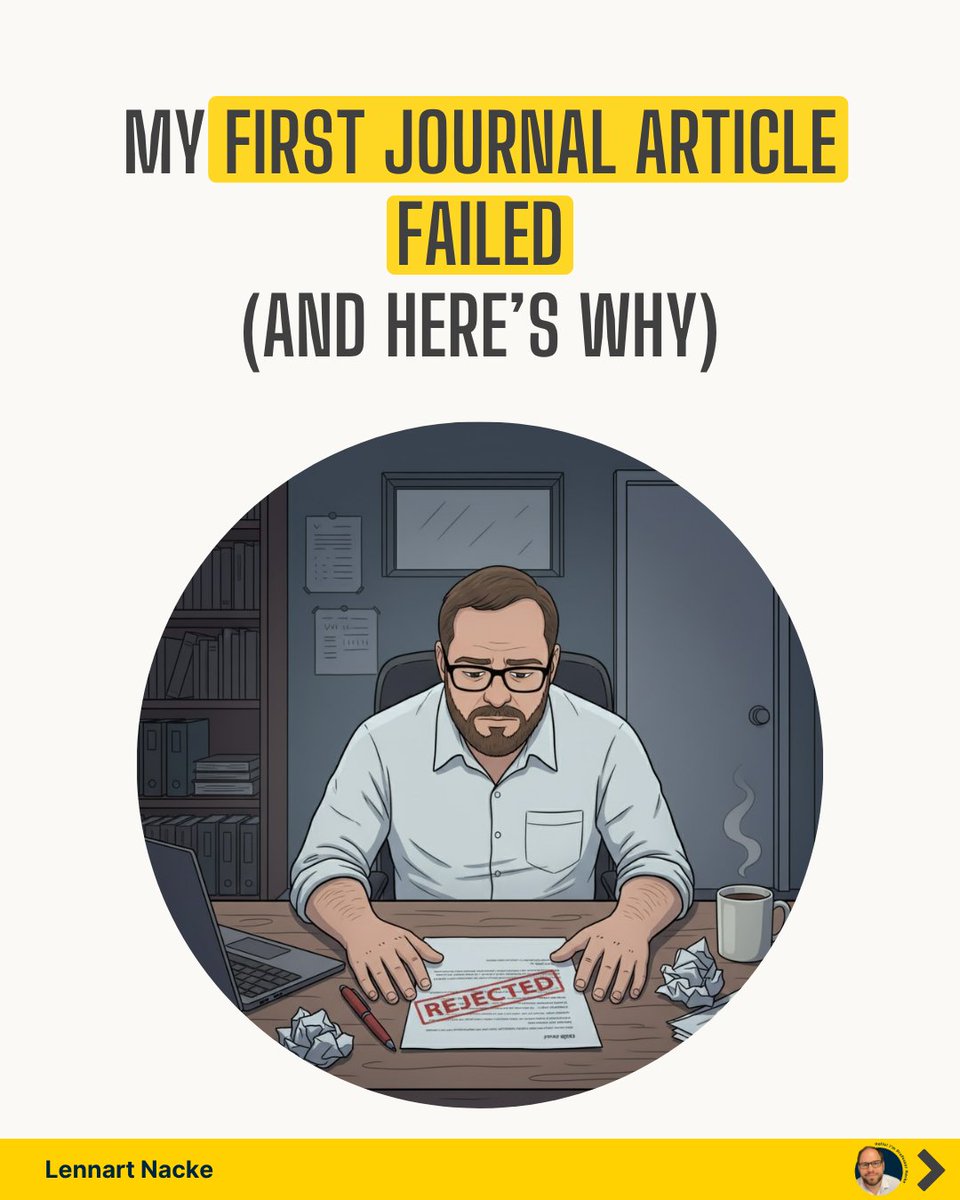
 I didn’t become a better writer with tricks.
I didn’t become a better writer with tricks.

 1. Write Every Single Day
1. Write Every Single Day
 1. Introduction sets expectations
1. Introduction sets expectations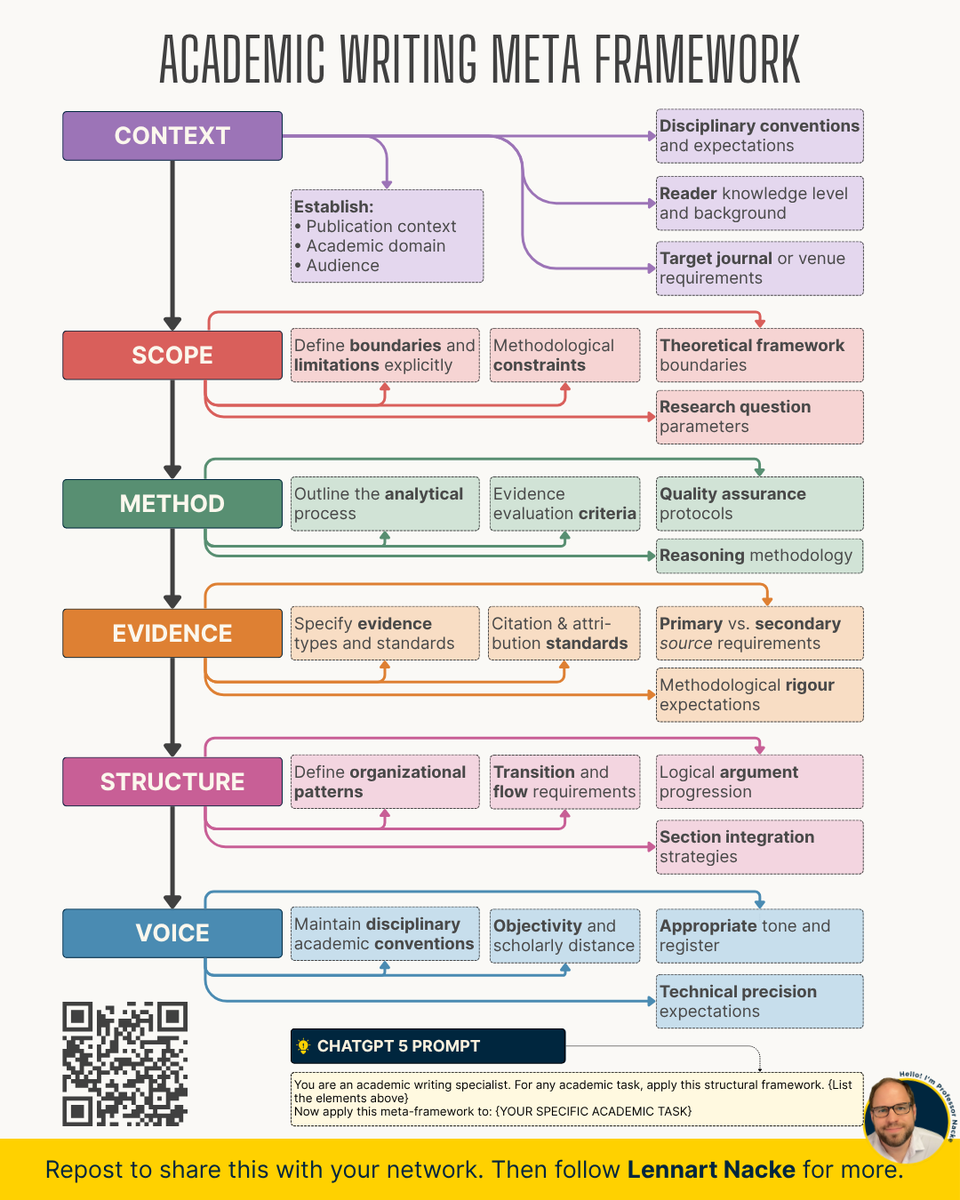
 1. Context Mapping First
1. Context Mapping First